Student Blog
Classes
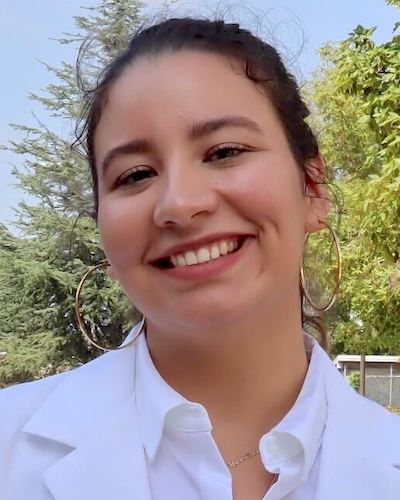
Lessons I Did NOT Expect OT School to Teach Me ⟩
April 2, 2024, by Natalie
Classes Life Hacks School/Life Balance
Hey everyone! I am back with a new list that I hope you will relate to, save, and refer back to when needed. Looking back at my last two years, these lessons I have learned have helped me grow as a person, as a professional, and as a future clinician. These lessons are not listed in our “Program Outcomes” or “Learning Objectives”. They are lessons I think everyone eventually learns, but that I learned when I felt challenged and pushed past my comfort zone.
Grades do not matter as much as you think. The Division has strict rules about the grade students are required to earn in any course in order to have those course credits apply towards earning the degree. According to the USC Chan Division of Occupational Science and Occupational Therapy (2023) student handbook:
The minimum passing grade in all OT required courses is C or above . . . To be eligible for graduation, a graduate OT student must achieve a final overall cumulative GPA of 3.0 or above AND a GPA of 3.0 or above on all courses applied to the entry-OTD degree (p. 15).
As long as you reach that required grade point average, there is no need to stress about every grade point percentage. No future client will ever ask you what grade you got on your adult rehab midterms; they will just be happy that you know what you need to know in order to help them. That being said . . .
You know so much more than you think. There have been too many times when I stress over an upcoming exam or feel a little reluctant to raise my hand in class because I feel unsure about my response, and more often than not, I come out doing pretty well! I do study and prepare for those exams and practicums though, I just usually feel I need a few more days to review. Personally, I have noticed that as long as I complete my readings and assignments and pay attention in class, my brain retains so much more than I realize.
Do not let your imposter syndrome get the best of you. You are capable, smart, and will be an amazing OT one day. You belong here at the top OT program in the nation, and you have the necessary tools and skills to earn your degree. When the imposter syndrome does hit, because it always does at some point, remember why you chose to pursue OT and what motivates you the most to always show up. Turn on music that helps you feel confident and powerful and push past the feelings of not being capable.
Remember that you are your harshest critic. It is important to keep in mind that you are likely the only person who expects you to do amazing in every single aspect of your life all the time. Obviously, give your best in everything that you do but recognize that your best may fluctuate depending on how many things you have going on at any given time. I read something once that said, “If one day, all you can give is 40% and you give that, you gave your 100% that day.” Being able to prioritize tasks and dividing your energy and focus in order for you to complete everything you have to get done is a really difficult but crucial skill that grad school will teach you if you have not learned it already.
Do NOT compare yourself to others. Everyone will tell you this tip from the start and it is easier said than done to learn, but the sooner you stop comparing yourself to others, the better. Save your energy and mental health and just do you.
Know yourself well. Know your strengths, your limitations, what strategies work for you, what type of help you need and when you need that help in order to keep yourself afloat. Also keep in mind that the strategies that work for you may change based on the situations or assignments you have going on. Adapt as needed and trust your gut.
Put your oxygen mask on first. With how busy grad school can get, it is so imperative that you take care of yourself first before anything else. You need to ensure you do what is needed for yourself in order to put your best effort forward in the work, activities, events, organizations, and relationships you are a part of. Taking care of yourself helps you avoid burnout and trust me, it is such a better option than trying to overcome the burnout.
Mistakes happen and are not the end of the world. In fact, mistakes help you learn! I have learned the most when I make mistakes because as human beings, we don’t like being wrong. It is better to make mistakes in class or during OT school than it is when you are out in the field later on (. . . and even then, those mistakes are okay too! Acknowledge the error, do your best to fix it, and move on!)
Trust the process. A lot of different things in OT will stress you out and may feel out of your control. Sometimes the material in a course is not coming together the way you thought it would. The course material will come together eventually (again, this varies per person: ask for help as you feel you need). The fieldwork process may be particularly stressful if you want any one specific site or practice area. You will get the experience required in order to earn your degree and sit for the NBCOT, even if it is not exactly what you want. In my mental health immersion I wanted to be placed in an inpatient psychiatric hospital and was placed in a Transitional Supported Housing Program. Looking back, I would not trade that experience for anything in the world. Every single alumni member I have spoken to, whether they are on the faculty or not, have told me to trust the process, after assuring me that they too felt similarly when they were a student.
Generalist versus Specialist. This one probably feels out of place and is very OT school specific compared to the rest of these lessons — I know what these words mean, but in terms of being in OT school, I had to learn what that meant for what I was learning in class. There are so many different specialties that OTs can gain knowledge in and it is hard to remember that as an OT student I need to focus on learning enough about everything in order to pass the certification exam as well as be able to practice in almost any setting that I choose. My time for specializing in specific topics will come, as will yours.
There you have it! I hope this newfound knowledge inspires you and helps you feel prepared for when these lessons inevitably sneak up on you. If you have any questions or would like to chat, feel free to reach out to .(JavaScript must be enabled to view this email address) and I will get back to you as soon as I can! Fight on!!
⋯
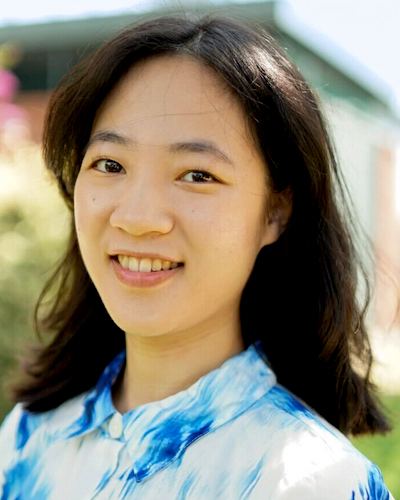
Academic Differences I Found and How I Adapted ⟩
March 26, 2024, by Cindy
Classes International
As a practicing occupational therapist from Taiwan, I was worried about stepping into a master’s degree program in the US. I did not know what to expect and how to prepare for the context transition. Therefore, I would like to share some academic differences I experienced. I also want to share some strategies and resources that helped me.
Difference:
- Interactive classes vs. lecture-oriented classes: The classes I attended were mostly lectures during my undergrad. Now, I find most PPMA classes are designed to let us learn by interacting with classmates and instructors. There are often in-class discussions or practices. I enjoyed those discussions, and I learned so much through them. However, I still find myself hesitating to raise my hand to answer questions or share my thoughts during group discussions.
- Critical analysis rather than one answer: The learning objectives behind the assignments are usually not just memorizing knowledge. Most assignments or questions in my classes do not ask for single answers. I spent more effort elaborating on how and why I chose this approach and got to the conclusion. Some assignments we had were appraising research articles, designing a treatment plan, and analyzing an occupational injustice situation.
- Reading materials: One thing I find both enjoyable and challenging is the amount of reading. Most classes have plenty of reading materials to support our learning. Sometimes, we are required to read through some materials before class to better participate in class. I love learning about the analysis of research outcomes and newly formed theories from those readings. However, it usually takes me plenty of time to read the articles.
- Different dynamics between instructors and students: It took me the most time to adjust to new ways of interacting and communicating with our instructors. I find the relationship between instructors and students less hierarchical. It makes asking the instructors questions or asking for support easier for me. Regardless, it is still a struggle for me to call my instructors by their first names.
- International perspectives: My classmates came from different regions and countries with various cultural backgrounds and clinical experiences. We have many opportunities to learn from others and share our perspectives. For example, in the occupational science class, we often have rich discussions about occupational injustice because of our various experiences. Despite the conversations being fruitful, we spend more effort clarifying with each other about their perspectives due to our diverse backgrounds.
- Language: For me, English is my second language. Even though I met the English proficiency criteria, fully understanding lectures, participating in small talks, reading multiple articles, writing assignments, and expressing our thoughts in group discussions do not come to me naturally. However, it pushed me to learn and use English. Our English level advanced really quickly in this all-English environment.
Strategies and Resources:
- Notice the differences: Being aware of the differences has helped me adjust more effectively. Talking to classmates and knowing what they were experiencing helped me better identify the differences I felt. It also showed me I was not navigating through this new context alone.
- Review syllabi: I realized too late that I should utilize course syllabi! The instructors will introduce the courses with the syllabi at the beginning of every course. The syllabi list the weekly content of the classes and assignments and their due dates. With this information, I could mark the assignment due dates, presentation dates, and exam dates on my calendar. I could plan the study schedule accordingly, which made me feel less stressed.
- Review assignment instructions and rubrics: I highly recommend reading through the assignment instructions and rubrics fully before you start doing the assignments. I can find what I should focus on in the assignment from the instructions. I can also know the details I need to accomplish to meet the assignment expectations based on the grading rubrics. Knowing the instructions and grading rubrics has saved me from spending extra time figuring out the assignments and worrying about what score I would get.
- Division and university resources: There are various academic resources in the Chan Division and USC. In our division, the Global Initiatives Office provides academic support hours, writing workshops, and other resources to support international students. There is also after-hours support held by the pedagogy residents in our division. In addition, there are more academic resources at USC. My classmates and I often access resources through the Kortschak Center website. They provide a semester calendar that contains every week of the semester, major school events, and holidays on one page. It helped me plan out my schedule more efficiently.
- Reach out to your instructors: Asking instructors questions was a bit challenging for me since this is not something I am used to. However, I learned that the instructors are happy to help and discuss with me. I feel less stressed about communicating my needs and queries with them. I have gone to my instructors to discuss the readings, ask for assignment expectation clarification, and even guidance for what elective courses to choose.
It takes time and effort to adapt to a new environment. Everyone may have diverse experiences influenced by various factors, such as culture, being in an advanced-level degree program, language, roles, etc. Despite the uniqueness of everyone’s journey, resources are plentiful to support people’s needs. What helped me the most was learning to communicate with my instructors, utilize the resources in the division and at school, and share the challenges I face with my classmates so we can support each other. Here at USC Chan, you don’t need to walk alone!
⋯

Redesigning My Daily Life ⟩
December 20, 2023, by Cindy
Classes School/Life Balance
Occupational therapists help people participate in things they need to and want to do to increase their well-being. As a licensed and practicing occupational therapist in Taiwan for two years, did I live a balanced life? Unfortunately, not really. Being a student again in a foreign country, I decided to seize this opportunity to practice what I have learned at USC Chan.
But how could I start? As we all know, changing lifestyle can be frustrating. I know I have had numerous unsuccessful attempts. Luckily, this time, there is a better resource to support me in making the change.
I am taking the Foundations of Lifestyle Redesign® Graduate Certificate pathway. This past semester, we learned about Lifestyle Redesign for people with different physical conditions. The class contents also covered how to change various aspects of daily life, including physical activity, the things you eat, how to manage stress, etc. The goal is to help people construct daily routines that are the best fit for bolstering this person’s well-being. In addition, we also practiced leading individual sessions and group sessions. These sessions allowed us to practice the knowledge we learned.
As the semester went by, I became more conscious about my daily routine. I realized that in my past learning experience, I prioritized studying only. The rest of the things in my life, including eating, sleeping, social participation, and leisure, were somehow dispensable. With this realization and a new start, I gradually adjusted my daily life a little at a time with a spirit of experimentation. I slowly became aware of what food makes my body happy. I tried different times to go to bed and wake up. I find the best time management and study strategies to maximize my time. Besides adjusting what I have been doing, I spent more time on other activities. I created chances to increase my physical activity, including taking the stairs, working in person so I must walk to my office, doing quick stretching and bodyweight training when talking to my parents via phone, etc. I am more conscious about engaging in social participation. I spent more time on phone calls with my family and friends in Taiwan, staying with my relatives here, and hanging out with my classmates and students from other programs.
The most exciting change I made was adding more leisure activities and practicing prioritizing them. I don’t know how many times I have thought to do something fun and ended up studying or working instead. A part of me felt like I was not utilizing my time in the best way if I spent time playing when I could be doing assignments. However, I knew that not participating in leisure activities has led to feeling burnt out. This time, I decided to do something about this. The topic of the group session program I was in targeted our leisure and play participation. To follow the short-term goal we set each week, I consciously dedicated more time to leisure activities. I started to realize my productivity when studying increased. I was more motivated to study and do assignments. I felt less stressed since school was no longer the only emphasis in my life.
Now, I have a regular sleeping routine, a more nutritious diet, and a better balance between work and leisure participation. I also built strong connections with my group mates. It was a fun process to figure out what changes can make my daily life suit me better. The changes were small, but the progress was exciting! These changes have brought more colors and harmoniously constructed my everyday life into a beautiful painting.
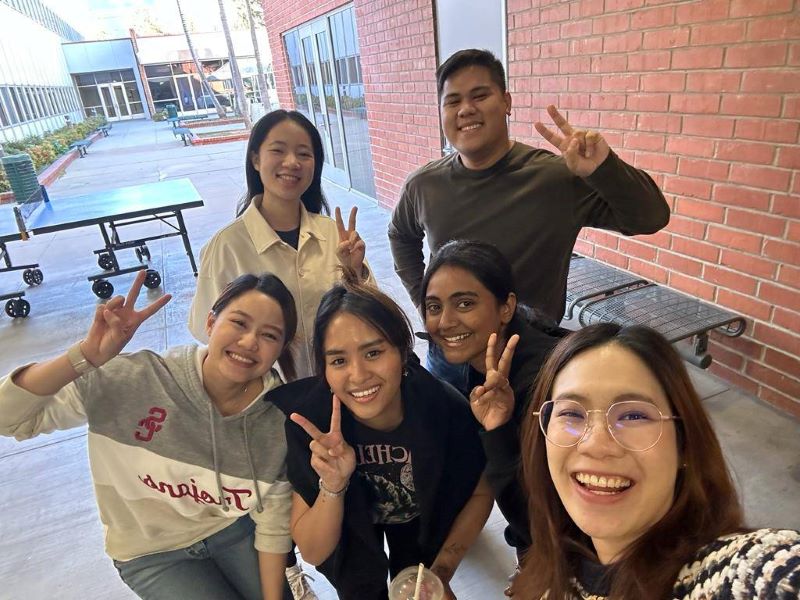
My groupmates and me after a lifestyle redesign group session
⋯
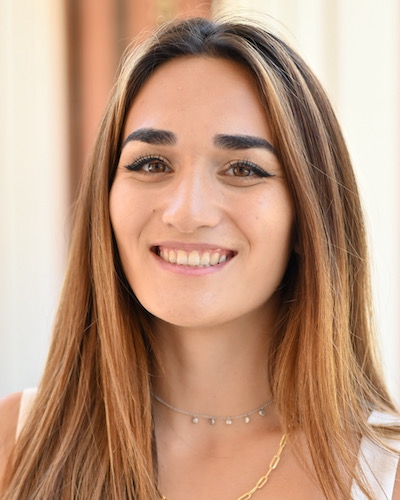
Tips to Survive OT School ⟩
January 29, 2023, by Leah Mary
Classes Life Hacks
1. Study with friends at the library, café, or home
As they say, misery loves company! But in all seriousness, studying with my friends was the number one thing that helped motivate me to study. It was a great way for us to have hands-on practice for labs (like transfers or motor control), quiz each other, or ask questions. My favorite places to study are Dulce, Doheny Library, and the USC Village.
2. Visit office hours
Whenever I didn’t know something or was anxious about a test, I always went to open hours. Our professors want us to go to those office hours. They structure it in an engaging way, especially when there are multiple students. This is an excellent chance for you to answer other students’ questions with the confirmation of our professors.
3. Kahoot
I used Kahoot for every test in the Entry Level Master’s Program. Classes like OT501, OT538, OT534, and even the Comprehensive Exam, Kahoot was a great study tool to help me conceptualize topics, create questions, and understand big-picture ideas.
4. Microsoft OneNote for note taking
Imagine having multiple color-coded binders that classes, topics, and weeks can organize but all on your computer. I knew I was overwhelmed with the number of courses, PowerPoint slides, research articles, and loose papers we get during the program. Having one application to organize everything made it easier to study and later use during my fieldwork and residency.
5. PDF Expert for the iPad
During the program, there were some classes where I liked to type my notes and others that I wanted to handwrite. PDF Expert is a free application that allows you to download your PDF slides to your tablet, write directly on the slides, and save them on your computer.
6. Gym shoes
Especially for classes such as Adult Rehabilitation and Motor Control, gym shoes are a must for optimal ergonomic support. Both Adult Rehabilitation and Motor Control labs involve lifting and practicing transfers with patients and students. Therefore, wearing the proper shoes is essential for your overall physical health.
⋯
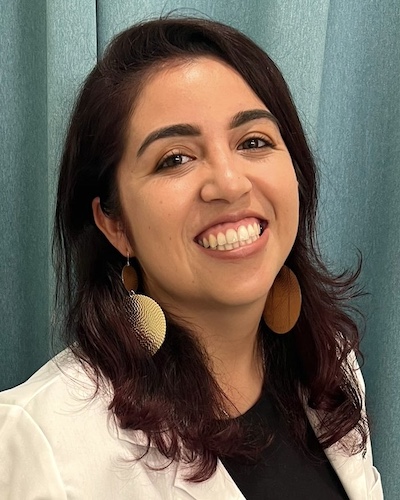
New Year, New Me? ⟩
January 17, 2023, by Tania
Classes Community Diversity First-Gen School/Life Balance
Starting a new year can feel weird at times because there is this weird societal pressure of being the best new version of yourself. However, if you ask me, I am already a different person from 5 months ago. In fact, each day we evolve. At times, we sit reminiscing on the things we didn’t accomplish the years before. Our minds go on and on about the should haves and could haves but we don’t have control over those anymore.
Maybe this year is not about reinventing or being the newest best version of yourself but instead about being patient, caring, and loving to the person you are right now. I invite you to instead or in conjunction with writing new year’s resolutions, take the time to celebrate ALL your accomplishments (big and small) and appreciate your life’s journey. This year block the outside noise!
This is because as first-generation, low-income, Latinx students we usually carry the weight of our families. We are forced to create our paths, we navigate unknown territories and we receive plenty of no’s along the way. Being the first in the family to do something different requires many “mistakes” that later turn into lessons for those that come after us. However, the beauty of being a first-generation, low-income, Latinx student is that we don’t take NO for an answer. It may take us longer, it may take us a few tears, and it may take us finding different ways to get there, but we are determined to accomplish what our heads and hearts set themselves to do because our families already sacrifice too much. We know how it was before so the only direction is forward. In my case, little Tania didn’t wake up every day at 3 am to commute across the US-Mexico border for 10 years for today’s Tania to give up now.
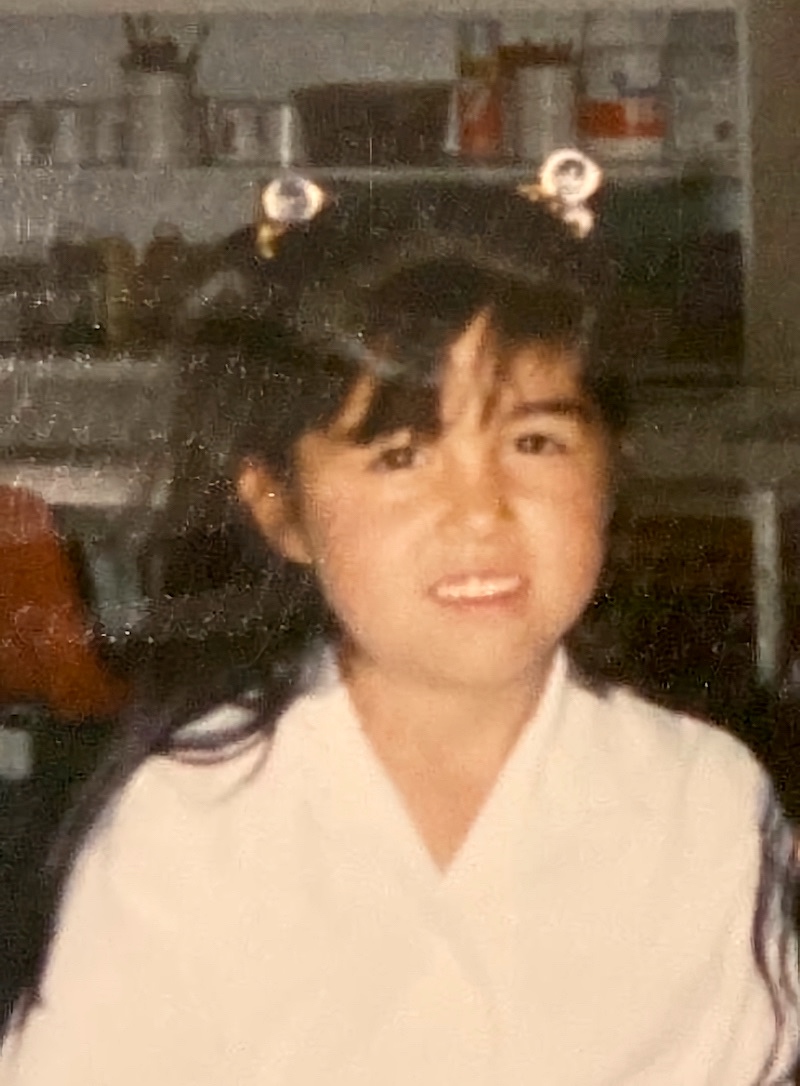
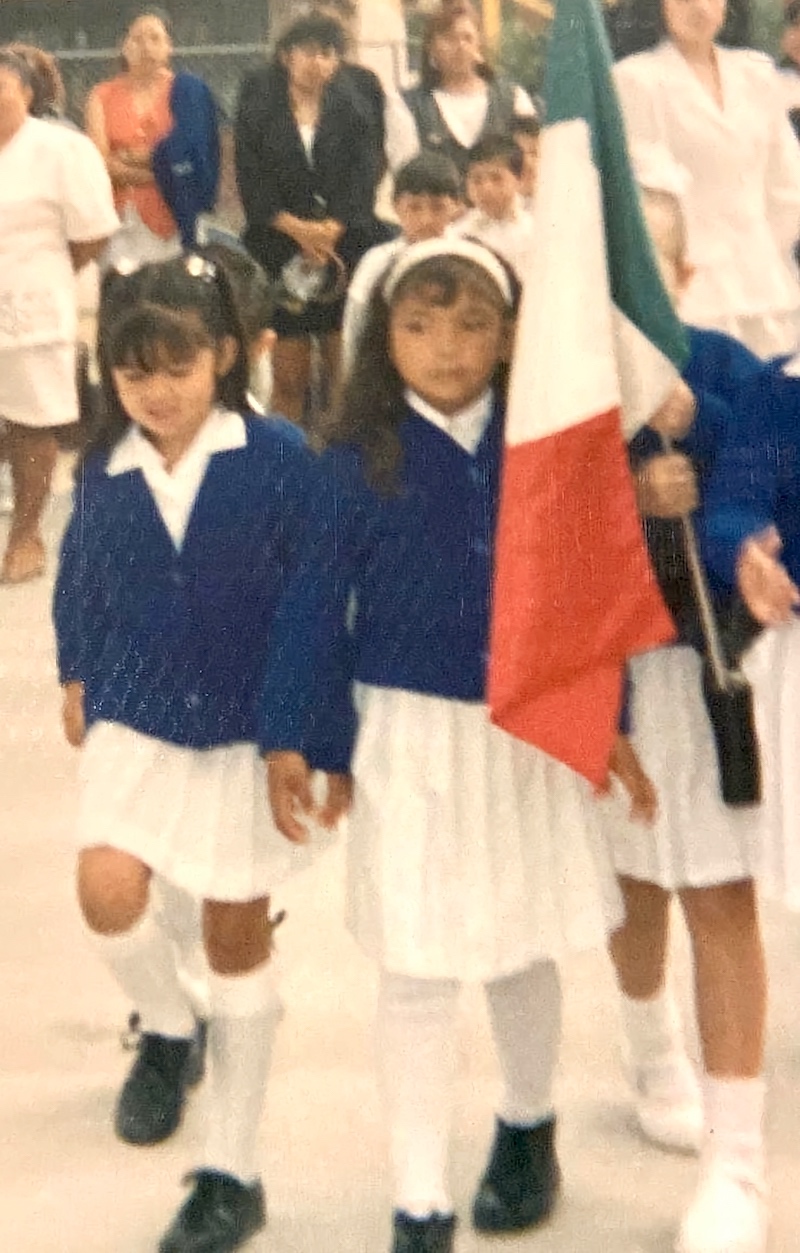
Little me would be so proud to see what was once a dream is now a reality. Present day Tania is working towards becoming a doctor in occupational therapy and accepted a paid residency at Children’s Hospital Los Angeles: University Center for Excellence in Developmental Disabilities (UCEDD)!
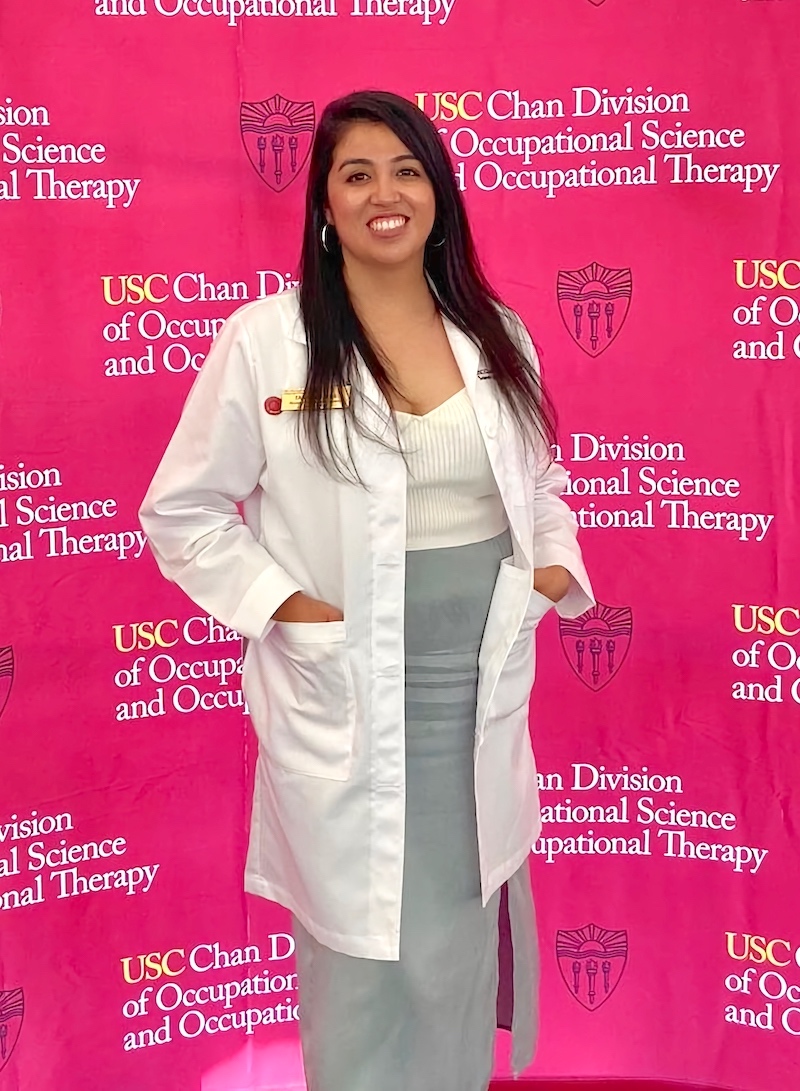
This 2023 there is no newest best version of me and there is no need for the newest best version of yourself either. So as hard as it can be, appreciate the now and be patient with who you are because past you once dreamed of who and where you are today. I’m sure little you is proud of how far you have come and your validation is the one that matters!
⋯





